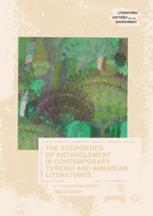

Most ebook files are in PDF format, so you can easily read them using various software such as Foxit Reader or directly on the Google Chrome browser.
Some ebook files are released by publishers in other formats such as .awz, .mobi, .epub, .fb2, etc. You may need to install specific software to read these formats on mobile/PC, such as Calibre.
Please read the tutorial at this link: https://ebookbell.com/faq
We offer FREE conversion to the popular formats you request; however, this may take some time. Therefore, right after payment, please email us, and we will try to provide the service as quickly as possible.
For some exceptional file formats or broken links (if any), please refrain from opening any disputes. Instead, email us first, and we will try to assist within a maximum of 6 hours.
EbookBell Team

4.0
6 reviewsThis book foregrounds entanglement as a guiding concept in Derrida’s work and considers its implications and benefits for ecocritical thought. Ergin introduces the notion of "ecological text" to emphasize textuality as a form of entanglement that proves useful in thinking about ecological interdependence and uncertainty. She brings deconstruction into a dialogue with social ecology and new materialism, outlining entanglements in three strands of thought to demonstrate the relevance of this concept in theoretical terms. Ergin then investigates natural-social entanglements through a comparative analysis of the works of the American poet Juliana Spahr and the Turkish writer Latife Tekin. The book enriches our understanding of complicity and accountability by revealing the ecological network of material and discursive forces in which we are deeply embedded. It makes a significant contribution to current debates on ecocritical theory, comparative literature, and ecopoetics.